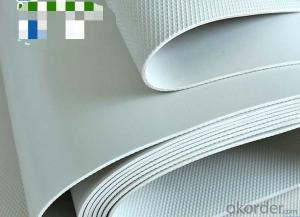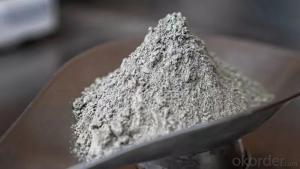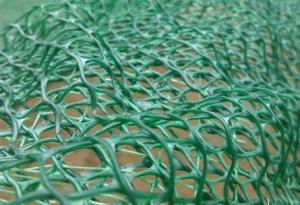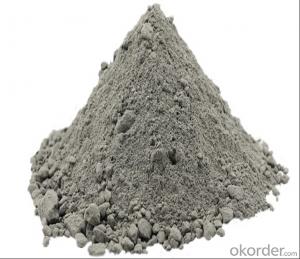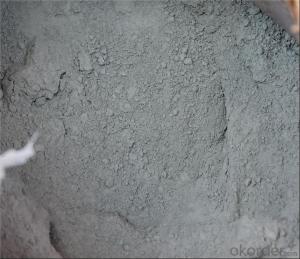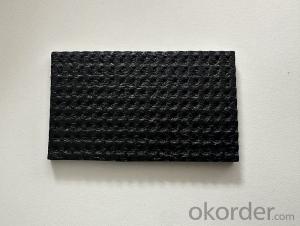PVC Root Puncture Resistant Waterproofing Membrane
- Loading Port:
- China main port
- Payment Terms:
- TT OR LC
- Min Order Qty:
- 5000 m²
- Supply Capability:
- 100000 m²/month
OKorder Service Pledge
OKorder Financial Service
You Might Also Like
1.The structure of PVC Waterproofing Membrane Description:
PVC waterproofing membrane is a kind of high quality, high polymer waterproof sheet.PVC resin is joined processing agent, such as plasticizer, anti-uv agent, anti-aging agent, stabilizing agent.The polymer waterproofing material is manufactured by extrusion method. This product adopt with unique formula, product life far beyond the general of waterproof material, long service life, the whole waterproof system roof for more than 20 years, underground for more than 50 years, has been widely used in architecture, civil engineering.
2.Main Feature of PVC Waterproofing Membrane:
•Long service life,good ageing resistance.
•High tensile strength,high elongation.
•Good flexibility at low temperature,good root resistance permeability.
•Strong resistance to chemical corrosion,strong plasticity.
•Conveniente for construction,low price.
3.PVC Watrerproofing Membrane Specification:
| Name | Width | Thickness | Length | |
| PVC waterproofing membrane | 2m | 1.2mm | 20m | |
| 1.5mm | ||||
| 2mm | ||||
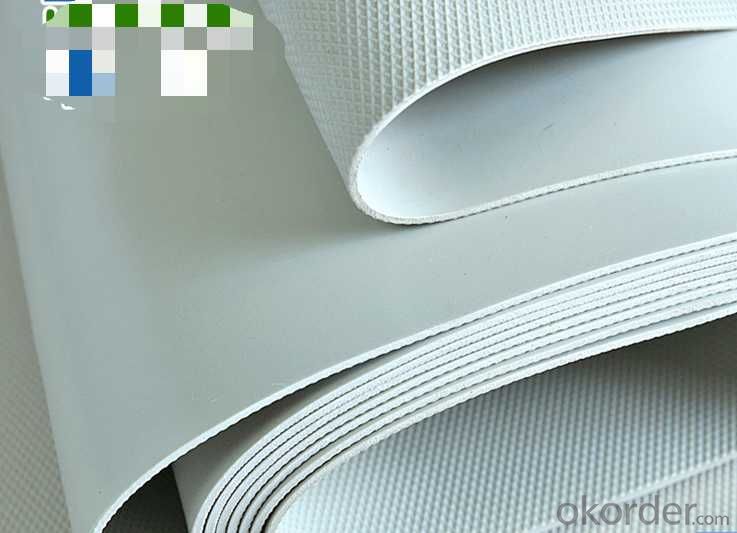
- Q:Can a waterproofing membrane be used for a tunnel?
- Yes, a waterproofing membrane can be used for a tunnel. A waterproofing membrane is a material or system that is designed to prevent the penetration of water into a structure. In the case of a tunnel, where there is a high risk of water ingress due to the surrounding soil or groundwater, a waterproofing membrane can be applied to the walls, floor, and ceiling of the tunnel to provide a protective barrier against water infiltration. The waterproofing membrane is typically made of a durable and flexible material, such as bitumen, PVC, or polyurethane. It is applied to the tunnel surfaces in multiple layers, ensuring a continuous and seamless seal. This membrane acts as a barrier that prevents water from seeping into the tunnel, protecting the structural integrity of the tunnel and enhancing its lifespan. In addition to providing waterproofing, a membrane can also offer other benefits to a tunnel. It can provide protection against chemicals, such as chloride or sulphate ions, which can cause corrosion in concrete structures. It can also act as a vapor barrier, preventing the migration of moisture from the surrounding soil into the tunnel. It is important to note that the selection and installation of a waterproofing membrane for a tunnel should be done by experienced professionals who understand the specific requirements and challenges of tunnel construction. The design and application of the membrane must take into account factors such as the geological conditions, water pressure, and expected traffic load on the tunnel. Overall, a waterproofing membrane can be effectively used for a tunnel to provide protection against water ingress and ensure the long-term durability of the structure.
- Q:Is a waterproofing membrane resistant to hydrocarbons or oil spills?
- Yes, a waterproofing membrane is typically resistant to hydrocarbons or oil spills. Waterproofing membranes are designed to create a barrier that prevents water penetration and moisture damage to the underlying surfaces. These membranes are often made from materials such as modified bitumen, polyurethane, or PVC, which have excellent resistance to various chemicals, including hydrocarbons and oil. This resistance ensures that the membrane remains intact and effective even when exposed to oil spills or hydrocarbon-based substances. However, it is essential to note that the specific resistance may vary depending on the type and quality of the waterproofing membrane used. Therefore, it is crucial to select a membrane that is specifically engineered to withstand the intended environment and potential chemical exposures.
- Q:Are waterproofing membranes resistant to freeze-thaw cycles?
- Waterproofing membranes, in general, exhibit resistance towards freeze-thaw cycles. Their design caters to enduring severe weather patterns, which encompass freezing temperatures and subsequent thawing. The selection of materials for these membranes is often based on their durability and capacity to expand and contract without jeopardizing their waterproofing capabilities. This resilience against freeze-thaw cycles guarantees the preservation of membrane integrity and efficacy in obstructing water infiltration, irrespective of regions experiencing frequent temperature fluctuations.
- Q:Can a waterproofing membrane be used for stadiums and sports arenas?
- Yes, a waterproofing membrane can be used for stadiums and sports arenas. These large structures are exposed to various weather conditions and are prone to water damage. Waterproofing membranes are designed to provide a protective barrier against water infiltration and can be applied to different parts of the stadium or sports arena, such as the roof, walls, and foundation. By preventing water from entering the structure, a waterproofing membrane helps to maintain the integrity of the building, prolong its lifespan, and prevent costly repairs due to water damage. Additionally, these membranes can also provide insulation and energy-saving benefits, further enhancing the overall performance of the stadium or sports arena.
- Q:Can a waterproofing membrane be used in conjunction with fire protection systems?
- Yes, a waterproofing membrane can be used in conjunction with fire protection systems. While the main purpose of a waterproofing membrane is to prevent water penetration, it can also provide an added layer of protection against fire hazards. Many waterproofing membranes are designed to be fire resistant or have fire-retardant properties. This means that they can help to delay the spread of fire and minimize its impact on the structure. Additionally, some waterproofing membranes are specifically designed for use in fire protection systems, such as fire-rated roof membranes or fire-resistant sealants. These specialized membranes can effectively seal off potential fire pathways and provide a barrier to protect the underlying structure. Overall, using a waterproofing membrane in conjunction with fire protection systems can enhance the overall safety and security of a building.
- Q:Can a waterproofing membrane be used on roofs?
- Yes, a waterproofing membrane can be used on roofs. Waterproofing membranes are commonly used on flat or low-slope roofs to provide an additional layer of protection against water infiltration. These membranes are typically made from synthetic materials such as modified bitumen, EPDM (ethylene propylene diene monomer), PVC (polyvinyl chloride), or TPO (thermoplastic olefin). They are designed to be durable, flexible, and resistant to UV rays, weathering, and ponding water. When properly installed, a waterproofing membrane can effectively prevent water from seeping into the underlying roof structure, protecting the building from leaks and water damage.
- Q:Can waterproofing membranes be used on precast concrete panels?
- Yes, waterproofing membranes can be used on precast concrete panels. Precast concrete panels can be susceptible to water penetration, which can lead to moisture damage and deterioration of the concrete. Waterproofing membranes are effective in preventing water infiltration by creating a barrier between the concrete surface and the external environment. These membranes are typically applied to the exterior surface of the precast panels, forming a protective layer that prevents water from seeping through the concrete. By using waterproofing membranes, precast concrete panels can be made more durable, longer-lasting, and resistant to moisture-related issues.
- Q:Can waterproofing membranes be used on concrete manholes?
- Yes, waterproofing membranes can be used on concrete manholes. These membranes are specifically designed to create a barrier against water infiltration, protecting the structure from damage caused by moisture. Applying waterproofing membranes on concrete manholes can help prolong their lifespan and prevent issues such as leaks and deterioration.
- Q:About asphalt waterproofing membrane
- 3, the performance of these two materials vary widely, SBS is a common international waterproof material, and linoleum due to poor performance, aging fast, has been used in the waterproofing works. The performance standard of linoleum is GB326 "oil asphalt paper linoleum", SBS coil implementation of the standard is GB18242 "elastomer modified asphalt waterproofing membrane."
- Q:Can a waterproofing membrane be used for tunnels and underground structures?
- Yes, a waterproofing membrane can definitely be used for tunnels and underground structures. These membranes are specifically designed to provide a protective barrier against water infiltration, preventing moisture from penetrating the structure and causing damage. They are highly effective in ensuring the long-term durability and structural integrity of tunnels and underground constructions.
1. Manufacturer Overview |
|
|---|---|
| Location | |
| Year Established | |
| Annual Output Value | |
| Main Markets | |
| Company Certifications | |
2. Manufacturer Certificates |
|
|---|---|
| a) Certification Name | |
| Range | |
| Reference | |
| Validity Period | |
3. Manufacturer Capability |
|
|---|---|
| a)Trade Capacity | |
| Nearest Port | |
| Export Percentage | |
| No.of Employees in Trade Department | |
| Language Spoken: | |
| b)Factory Information | |
| Factory Size: | |
| No. of Production Lines | |
| Contract Manufacturing | |
| Product Price Range | |
Send your message to us
PVC Root Puncture Resistant Waterproofing Membrane
- Loading Port:
- China main port
- Payment Terms:
- TT OR LC
- Min Order Qty:
- 5000 m²
- Supply Capability:
- 100000 m²/month
OKorder Service Pledge
OKorder Financial Service
Similar products
New products
Hot products
Related keywords
